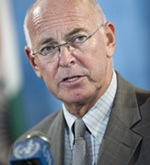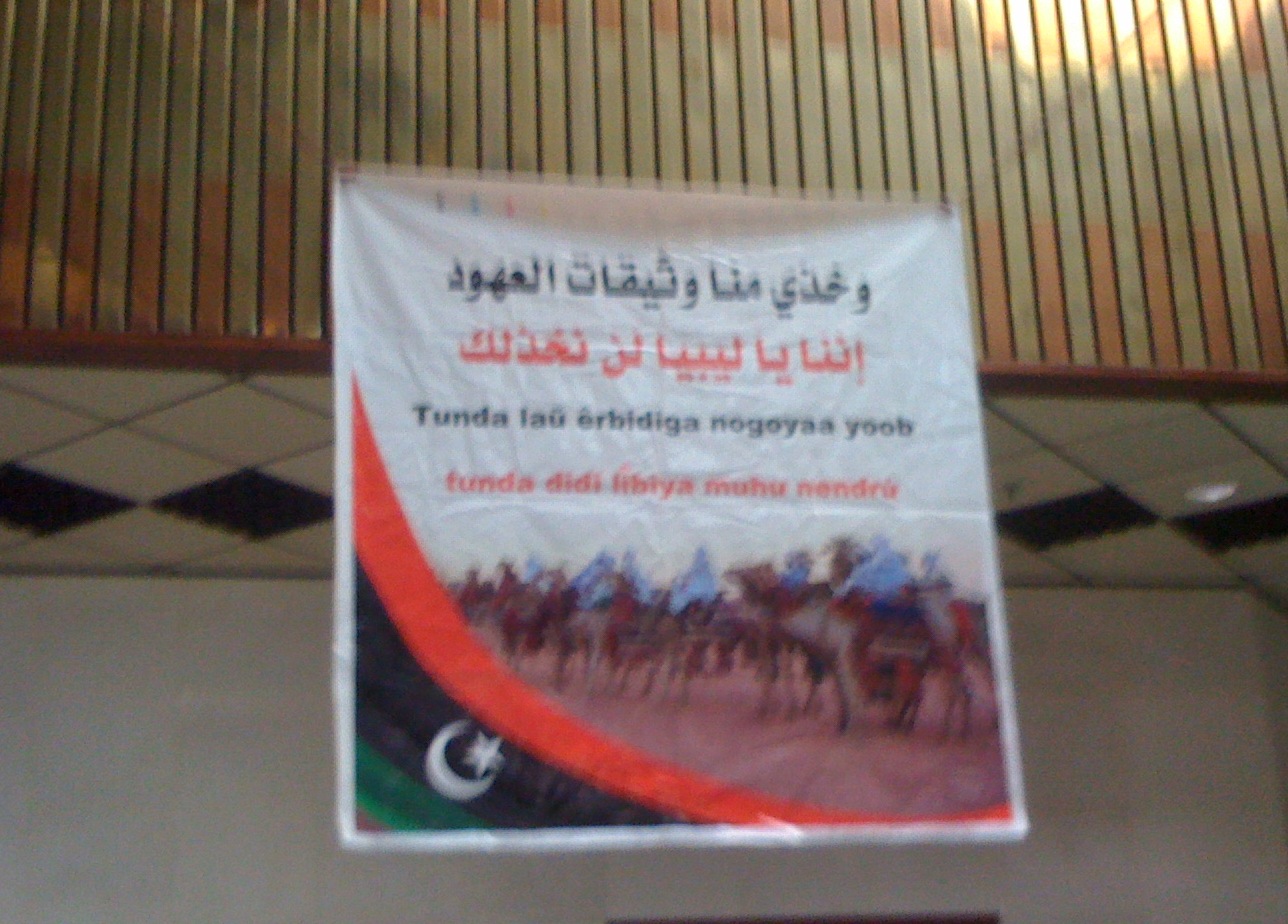Despite international reports to the contrary, Libya’s militias do not want to hang on to power and the streets, but merely . . .[restrict]wish to ensure that the revolution they fought for, stays on track said the United Nation’s man in Libya.

Ian Martin, the UN Secretary General’s special representative in Libya and head of the UN’s Mission of Support in Libya (UNSMIL) explained Wednesday in his latest report to the Security Council: “ Contrary to the impression given by some media reports, although the brigades seek guarantees that the transformation for which they have fought is securely on track, there is little indication that they wish to perpetuate an existence outside state authority.” Martin also pointed out that many militiamen were unpaid and serving purely as volunteers.
Admitting that some brigades lacked clear lines of command and co-ordination he said: “There is some appreciable progress in the development of state authority over brigades in the provision of security, including through the establishment of local security committees under the direction of the Ministry of Interior, to coordinate security operations among participating brigades.”
Martin cited the success of the February 17 celebrations to mark the first anniversary of the outbreak of the revolution. Though some sort of attack by pro-Qaddafi elements had been expected, the huge street parties throughout the country patrolled by militiamen, passed off without incident.
He said he believed that the role of the brigades would change as the Ministry of the Interior took over land, air and sea port border controls, as the government intends.
Martin however had less positive news on detainees, reporting to the Security Council that there were still between five and six thousand people held by militias. He pointed out that since his last report in January, the government had taken over two detention centres, bringing to eight the number of prisons it now controlled with 2,832 detainees.
He also expressed guarded frustration at the progress of any probe into the attack on Tawerghas living in an internal displaced persons camp at the old naval academy at Janzour, in which seven people were killed. He said that UNSMIL had strongly urged an investigation into the murders.
Pointing out that the dead included three children and two women, he continued: “The United Nations has pressed for better security not only at this camp, but also at locations of displaced Tawergha in other parts of the country. This latest incident underscores the urgent need for the responsibility for arrests and detention to be exercised by the Ministry of Justice alone”.
Martin noted that the apology earlier this month from Tawergha tribal leaders to the people of Misrata for crimes committed against them by Tawergha was a contribution toward reconciliation. He said that UNSMIL would continues to work with the Libyan authorities to address the short and longer-term needs of the Tawergha community. [/restrict]







